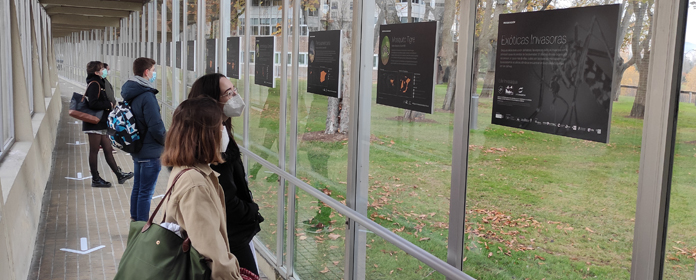20000324-Una experta aconseja a ancianos, embarazadas e inmunodeprimidos que extremen la higiene en la alimentación
Expert advises elderly, pregnant and immunocompromised people to be extremely hygienic in their diets
Isabel García Jalón spoke at the workshop on "The challenges of the 21st century consumer", at the University of Navarra.
Food hygiene seeks to eliminate the development of microorganisms that can affect our health. As explained in a statement by Isabel García Jalón, director of the diploma program of Human Nutrition and Dietetics at the University of Navarra, "the elderly should take special care to consume safe food because they are more sensitive to pathogenic microorganisms. Other risk groups are pregnant women and the immunocompromised".
Professor García Jalón gave a lecture at lecture at the University of Navarra on 'Food safety', at a workshop on "The challenges of the 21st century consumer. Women and health", organized by association provincial of housewives, consumers and users of Navarra 'Santa María la Real'.
"Microorganisms are the main cause of illnesses linked to food consumption. This is because they are more difficult to control than other risks, such as those produced by additives or environmental contaminations, cases in which health authorities grant certain levels of permissiveness," he said.
Isabel García Jalón, professor of the department of Microbiology of the School of Sciences, assured that "the greatest danger is that the issue of dangerous microorganisms present in a food increases to risk levels at the moment of being consumed". In the home, this can occur "in cooked foods that have undergone a subsequent handling process (seafood cocktail, salad with pieces of ham or cheese...) and in those that are left at room temperature for a few hours". In this sense, he recommended using clean utensils and keeping the products in the refrigerator until the moment of eating them.
Do not rely on appearanceIn the case of technologically processed and ready-to-eat products, "there can also be danger when cold storage is interrupted for hours, for example, if they are kept in the car or out of the refrigerator for a long time after purchase". The professor cited the recent outbreak of contamination in France by Listeria monocytogenes, which arose in vacuum-packed cold cuts preserved at insufficiently low temperatures. This case seriously affected at-risk groups and even caused some deaths.
The expert from the University of Navarra recommended not to rely exclusively on the appearance of food: "Pathogenic microorganisms can be found in sufficient quantities to damage health, without having altered the texture, color or flavor of the product". The foods most susceptible to the growth of microorganisms are protein foods, those rich in water and non-acidic foods such as meat, eggs or fish. In general, a cooked product should not be kept in the refrigerator for more than 48 hours.
As for freezer storage, there is no problem if temperatures are low enough. "Regarding freezing and thawing, the problem, more than hygiene, affects the gastronomic and nutritional quality. Repeated freezing damages the structure of the product, dries it out and loses components".




